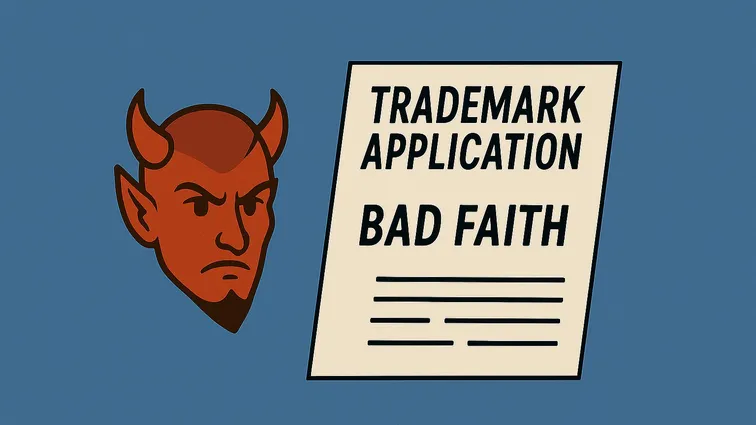Increasingly in trademark practice, we see applicants attempting to register trademarks for well-known marks (historically or currently), but caution is advised – this could constitute bad faith filing, so read on to learn more!
A trademark application is considered to be filed in bad faith if the applicant knew or should have known at the time of filing that their actions were against morality, ethics, and general business and trade principles. This could happen if the applicant only wants to own the mark speculatively and sell it when the time is right, for instance, to someone who legally uses the mark but has not registered it, rather than using it for their business. Or, as is usually the case with historically well-known trademarks that have expired but still enjoy a positive reputation (residual goodwill), they do want to use it for their business but free ride on the reputation of an unregistered mark.
Situation in the Czech Republic
Generally speaking, Czech law does not allow to prevent a trademark from being registered during registration procedures because the applicant did not act in good faith. Only after a trademark has been registered may it be challenged by submitting an application to declare the trademark invalid if it was not submitted in good faith.
In general, anyone is eligible to file an application for invalidity. However, in cases of bad faith, it is usually the owners of long-established trademarks who pursue legal action. Additionally, the descendants or heirs of an asset associated with a historically recognised trademark may also make the application.
The determination of whether an application for a trademark is filed in bad or good faith is evaluated based on the circumstances present on the actual date the application is submitted (or the date of priority).
Famous examples
There are notable instances involving SIMCA cars where the residual goodwill of a trademark, despite its expiration and disuse, was strong enough to annul a new trademark application filed by another party, due to the application being made in bad faith.
In the legal context of the Czech Republic, you might be familiar with Jan Nehera, a clothing entrepreneur famous in the 1930s, whose NEHERA trademark was discontinued in 1946. Recently, an applicant sought to register a new NEHERA trademark and faced opposition from Jan Nehera’s heirs. The issue revolved around whether the new trademark application was submitted in bad faith. However, the trademark was upheld because there was insufficient evidence to prove any bad faith in the filing process.
The registration of the historically recognised designations of SIMCA and NEHERA was discussed in this article (available in Czech only).
In fact, we don’t even have to go back in time. We can observe situations where the concept of bad faith filing is relevant, such as with the EU trademark registrations for “Hawk Tuah”. This phrase gained immense popularity following a viral video and subsequent meme that captivated audiences worldwide in 2024. Recognising the lucrative potential of the meme’s merchandising opportunities, various entities pursued EU trademarks for “Hawk Tuah”, either alone or in combination with other elements. These actions raise concerns about the possibility of invalidating these trademarks due to the applicants’ apparent lack of good faith and their attempt to capitalise on the fame of “Hawk Tuah”. Although there have not yet been any formal challenges, it remains uncertain how the originator of the “Hawk Tuah” phrase will respond to these developments.
What does that imply?
Essentially, before submitting an application, it is important to thoroughly search the existing register for earlier registered trademarks. This should include a general online search, which can provide valuable insights into potential challenges or issues during the filing process. Such searches can reveal whether your trademark might face opposition from third parties or be contested after registration for invalidity due to possible concerns such as lack of good faith.
We consistently advise our clients to thoroughly assess situations involving historically recognised designations. Conducting searches is an integral part of our expertise, and we are dedicated to assisting you at every stage – from performing the search and analysing the findings to developing a suitable trademark strategy.








